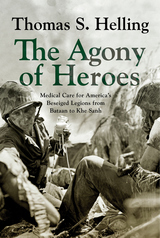
Catholic political identity and engagement defy categorization. The complexities of political realities and the human nature of such institutions as church and government often produce a more fractured reality than the pure unity depicted in doctrine. Yet, in 2003 under the leadership of then-prefect Joseph Cardinal Ratzinger (now Pope Benedict XVI), the Congregation for the Doctrine of the Faith issued a "Doctrinal Note on Some Questions Regarding the Participation of Catholics in Political Life." The note explicitly asserts, "The Christian faith is an integral unity, and thus it is incoherent to isolate some particular element to the detriment of the whole of Catholic doctrine. A political commitment to a single isolated aspect of the Church's social doctrine does not exhaust one's responsibility toward the common good." Catholics and Politics takes up the political and theological significance of this "integral unity," the universal scope of Catholic concern that can make for strange political bedfellows, confound predictable voting patterns, and leave the church poised to critique narrowly partisan agendas across the spectrum.
Catholics and Politics depicts the ambivalent character of Catholics' mainstream "arrival" in the U.S. over the past forty years, integrating social scientific, historical and moral accounts of persistent tensions between faith and power. Divided into four parts—Catholic Leaders in U.S. Politics; The Catholic Public; Catholics and the Federal Government; and International Policy and the Vatican—it describes the implications of Catholic universalism for voting patterns, international policymaking, and partisan alliances. The book reveals complex intersections of Catholicism and politics and the new opportunities for influence and risks of cooptation of political power produced by these shifts. Contributors include political scientists, ethicists, and theologians. The book will be of interest to scholars in political science, religious studies, and Christian ethics and all lay Catholics interested in gaining a deeper understanding of the tensions that can exist between church doctrine and partisan politics.

For well over a century the Catholic Church has articulated clear positions on many issues of public concern, particularly economics, capital punishment, foreign affairs, sexual morality, and abortion. Yet the fact that some of the Church's positions do not mesh well with the platforms of either of the two major political parties in the U.S. may make it difficult for Americans to look to Catholic doctrine for political guidance. Scholars of religion and politics have long recognized the potential for clergy to play an important role in shaping the voting decisions and political attitudes of their congregations, yet these assumptions of political influence have gone largely untested and undemonstrated.
Politics in the Parish is the first empirical examination of the role Catholic clergy play in shaping the political views of their congregations. Gregory Allen Smith draws from recent scholarship on political communication, and the comprehensive Notre Dame Study of Parish Life, as well as case studies he conducted in nine parishes in the mid-Atlantic region, to investigate the extent to which and the circumstances under which Catholic priests are influential in shaping the politics of their parishioners.
Smith is able to verify that clergy do exercise political influence, but he makes clear that such influence is likely to be nuanced, limited in magnitude, and exercised indirectly by shaping parishioner religious attitudes that in turn affect political behavior. He shows that the messages that priests deliver vary widely, even radically, from parish to parish and priest to priest. Consequently, he warns that scholars should exercise caution when making any global assumptions about the political influence that Catholic clergy affect upon their congregations.
READERS
Browse our collection.
PUBLISHERS
See BiblioVault's publisher services.
STUDENT SERVICES
Files for college accessibility offices.
UChicago Accessibility Resources
home | accessibility | search | about | contact us
BiblioVault ® 2001 - 2024
The University of Chicago Press









